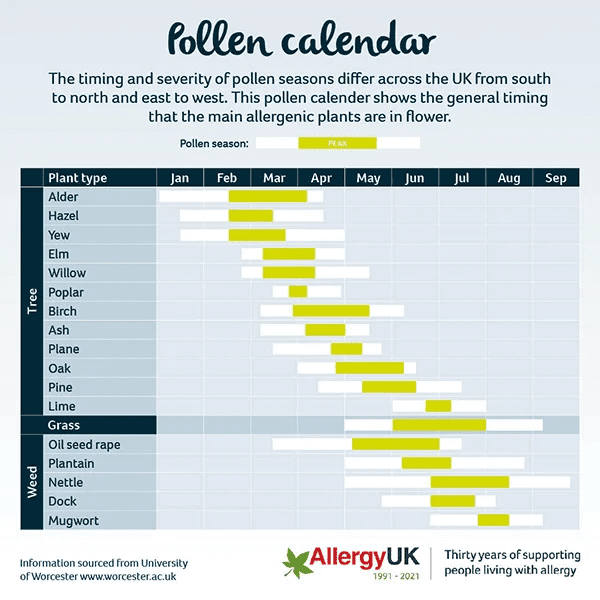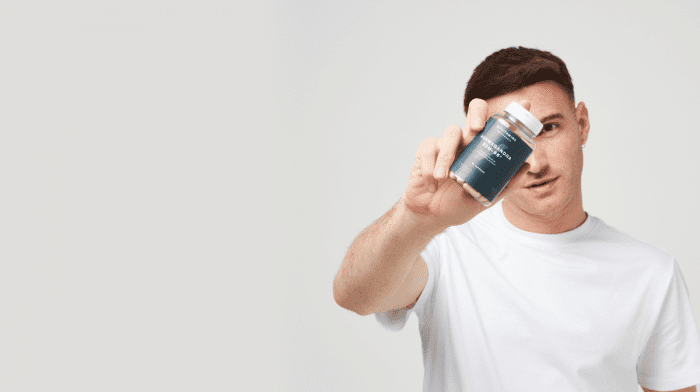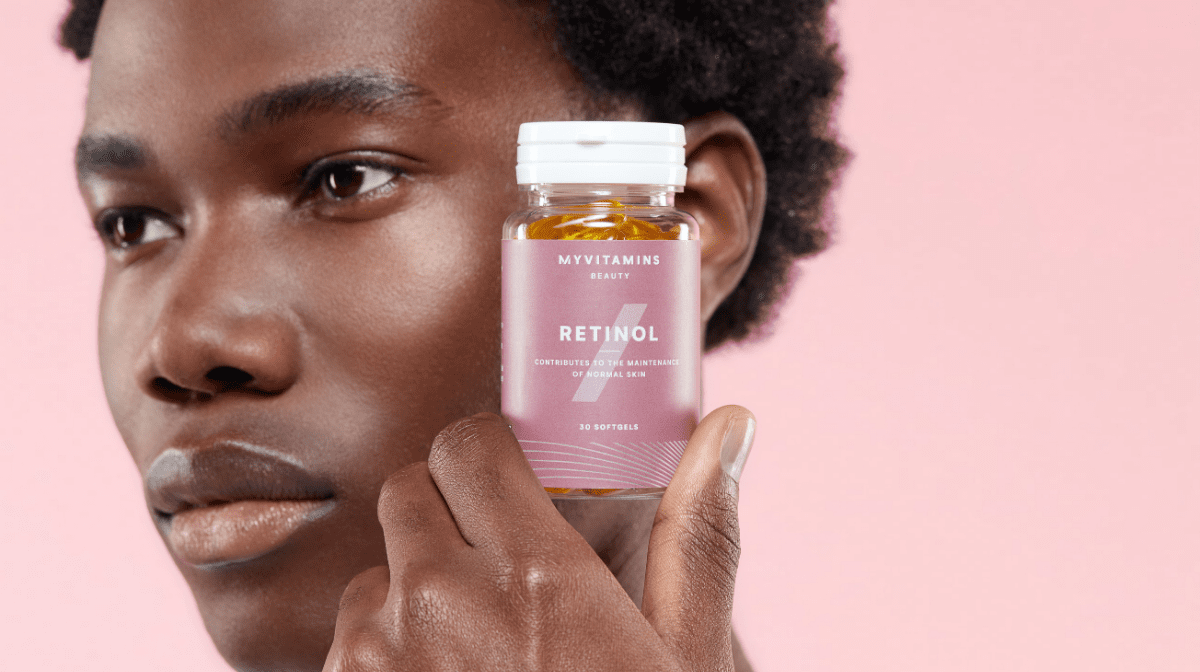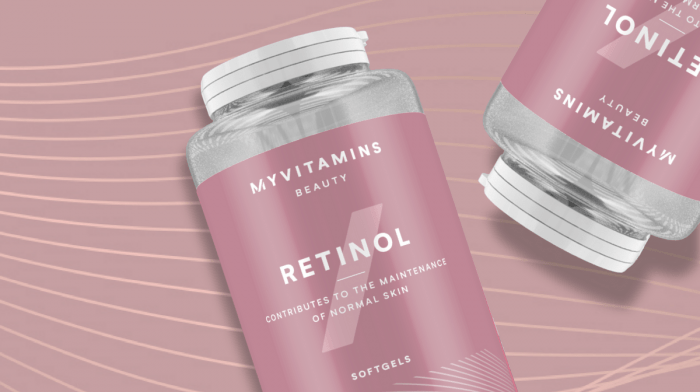As one of the most common allergic reactions, hay fever is estimated to affect more than 10 million people in England. (1) But what causes hay fever and how can we ease symptoms? Read on to find out.
In this article you’ll find:
- What Is Hay Fever?
- Causes Of Hay Fever
- When Is Hay Fever Season?
- Hay Fever Symptoms
- Hay Fever Remedies
- How To Prevent Hay Fever
What Is Hay Fever?
Hay fever is an allergic reaction to pollen, the fine powder found in plants. Symptoms typically begin when pollen comes into contact with the mouth, nose, eyes and throat.
There are three main types of pollen allergy: grass, tree and weed. Symptoms and levels of each type can vary, which is why you might suffer from hay fever one year and not the next.
Causes Of Hay Fever
The symptoms of this allergy are pretty well known, but what causes it? When hay fever begins, your immune system incorrectly identifies an airborne substance (pollen) as harmful. When you next meet pollen, your immune system reacts by sending chemicals such as histamine into your bloodstream. 2
When Is Hay Fever Season?
The UK pollen season lasts for several months, starting in January and ending in September. Warm, humid and windy weather makes hay fever worse as it creates the perfect conditions for pollen to spread.

https://www.kleenex.co.uk/advice/pollen/pollen-calendar
Hay Fever Symptoms
The symptoms of hay fever differ from those of a cold. A typical cold lasts around 3-7 days and can cause a fever, runny nose and body aches. Hay fever can last for months and causes a runny nose, itchy throat and a cough.
Common symptoms of hay fever include:
- Sneezing and Coughing
- Itchy nose and throat
- Nasal congestion and runny nose
- Decreased sense of smell
- Itchy, watery eyes
- Headache around the forehead
- Fatigue
Hay Fever Remedies
Vitamins and supplements can help to ease and prevent allergy symptoms. Remedies include:
Vitamin C
An an essential nutrient for the immune system, vitamin C can be beneficial for allergies (immune reactions to substances in the environment.) Recent studies show that vitamin C acts as a natural antihistamine, reducing swelling and inflammation at the site of a reaction. 3









